SMEs come together in a show of strength
Imagine walking into a shop and finding products that are identical to those at branded outlets but are being sold for only a fraction of the price levied by the well-known companies.
Genuine leather belts can be bought for Tk 500 only while export-quality leather bags, which are shipped to Japan and European nations, can be purchased for only Tk 1,500 to Tk 2,500.
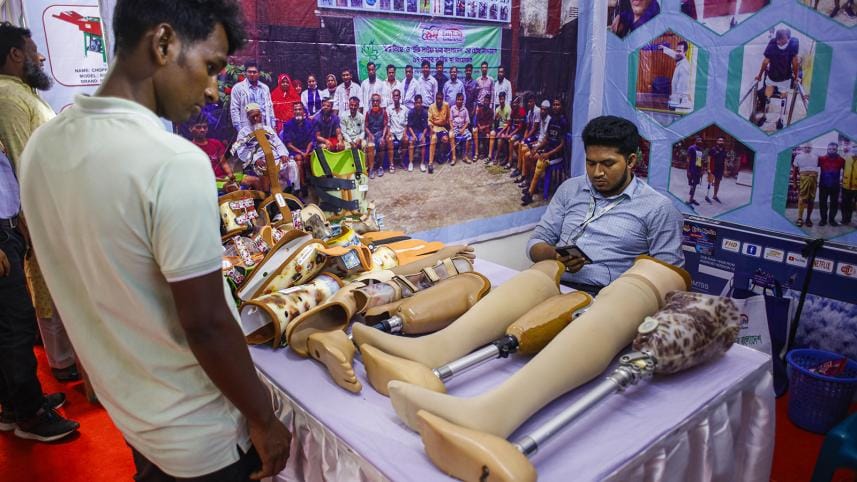
A wide range of ceramic products, including pots, planters, vases and decorations pieces can be bought for as little as Tk 160 while jute bags, some finished exquisitely with leather accents, will cost Tk 400.
Such bargains are made possible by the wonders of small and medium enterprises (SMEs), who came together at the 11th National Small and Medium Industrial Products Fair, organised by the SME Foundation under the Ministry of Industries.
SMEs are considered the lifeblood of any economy, but despite their major role, many believe these relatively modest enterprises simply process raw materials. Others opine that when they do sell goods, the products are not of the ilk of top brands.
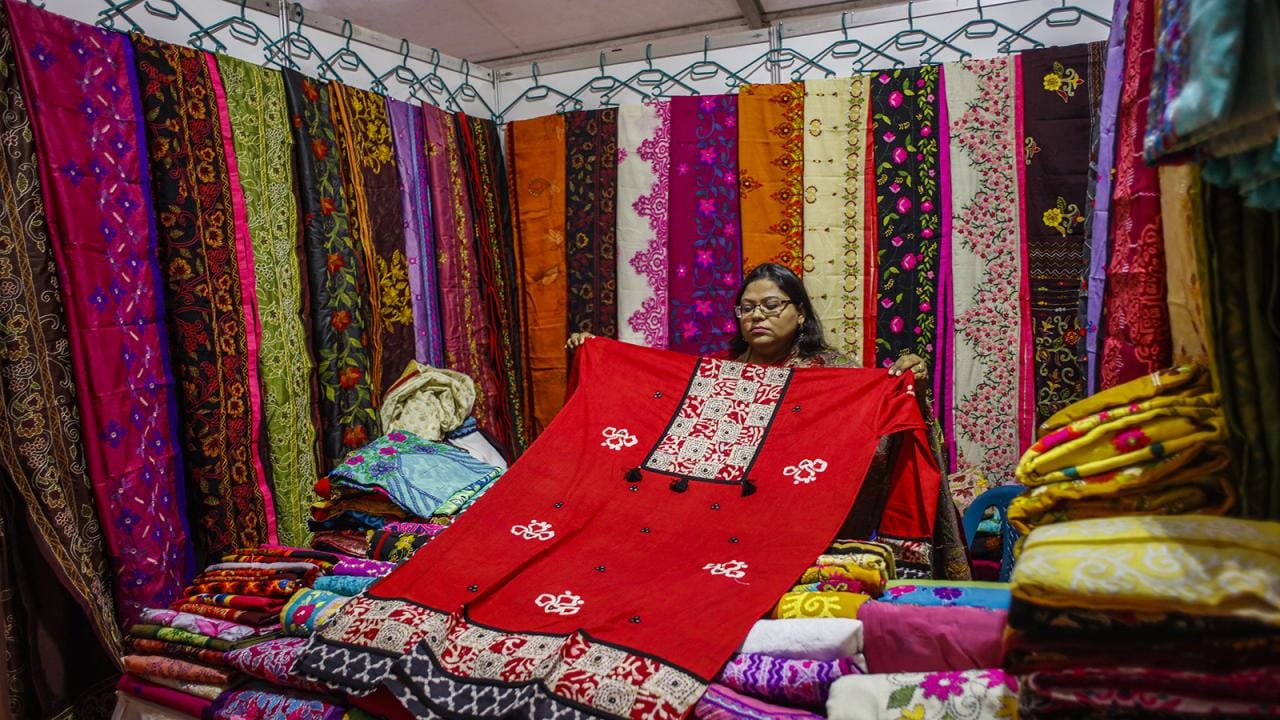
In reality, these diligent entrepreneurs have come leaps and bounds in terms of innovation, creativity and quality.
In fact, according to a report by the Planning Division under the Ministry of Planning released in 2019, SMEs accounted for 69.9 percent of total manufacturing value-addition in Bangladesh.
For example, jute was once used only to make sacks. But owing to the innovative minds of entrepreneurs, they have diversified the range of products over time.
Now, more than 100 jute goods, including bags, rugs and even decorations, are sold at home and abroad, with Bangladesh exporting jute and jute products worth $912.25 million in the last fiscal year.
To showcase their improvement and boldly challenge any misplaced notions, numerous entrepreneurs have come together in a show of power at the Bangabandhu International Conference Centre in the capital's Sher-e-Bangla Nagar.
Hundreds of products, including ornaments, agriculture machinery, processed agricultural products, and handicrafts were on display alongside numerous boutiques, which boasted Jamdani and Tangail saris.
The growth of such SMEs is also a boon for the economy.
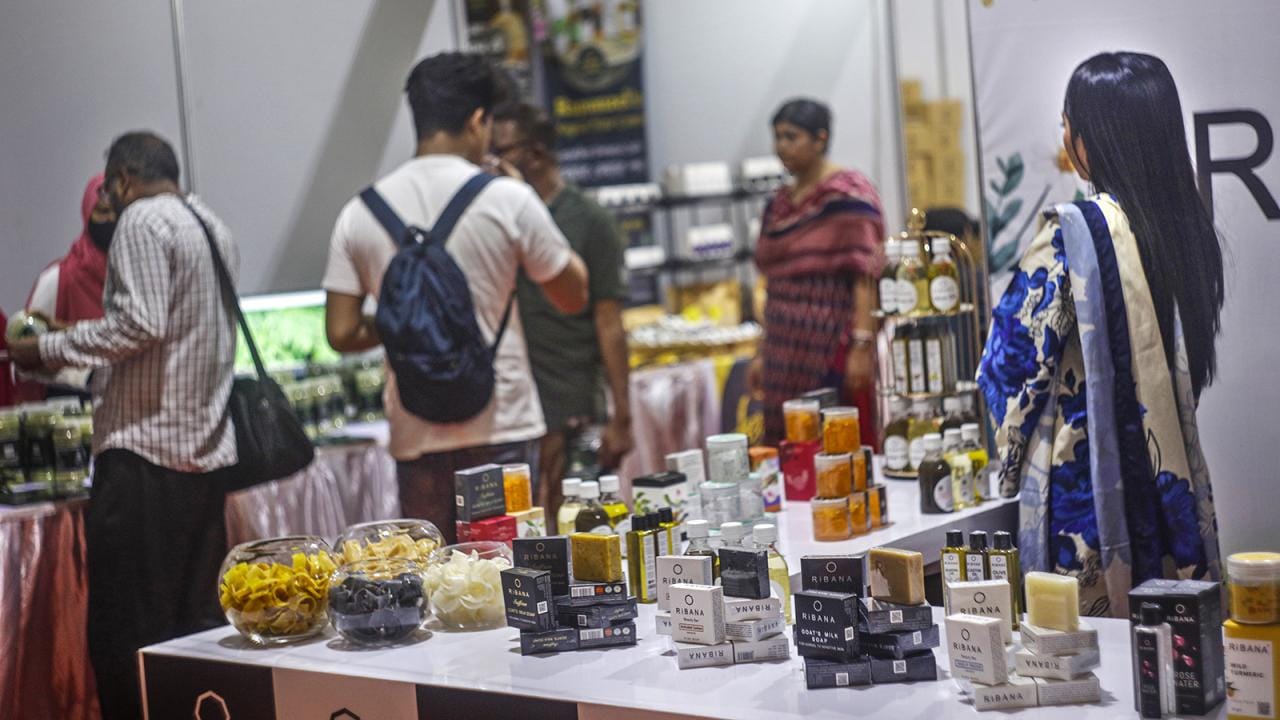
Due to the labour-intensive nature of such ventures, they are leading job creators. Collectively, these enterprises play a bigger role in the economy than any powerhouse in any sector.
According to the World Bank, SMEs account for about 90 percent of businesses and more than 50 percent of employment worldwide.
The contribution of the SME subsector was almost 25 percent of Bangladesh's GDP in 2018, according to the Planning Division report.
Visiting the ongoing SME fair, the realisation dawned that a lot of these enterprises have enhanced their manufacturing capacity.
Md Masudur Rahman, chairperson of the SME Foundation, lauded the quality and diverse range of products. "The capacity of such enterprises and the efficiency of their workers has improved enormously over the past 15 years."
Another heartening fact is that about 60 percent of the enterprises at the fair are led by women entrepreneurs, highlighting the gender inclusive nature of such businesses.
As one ventures through the fair and wanders past the stalls, it becomes clear that every entrepreneur has a story worth telling.
Zuena Ferdous Mitul, owner of Ahllad Fashion in Rangpur, is exhibiting various jute products, including school bags, canvases, travel bags, and sports bags.
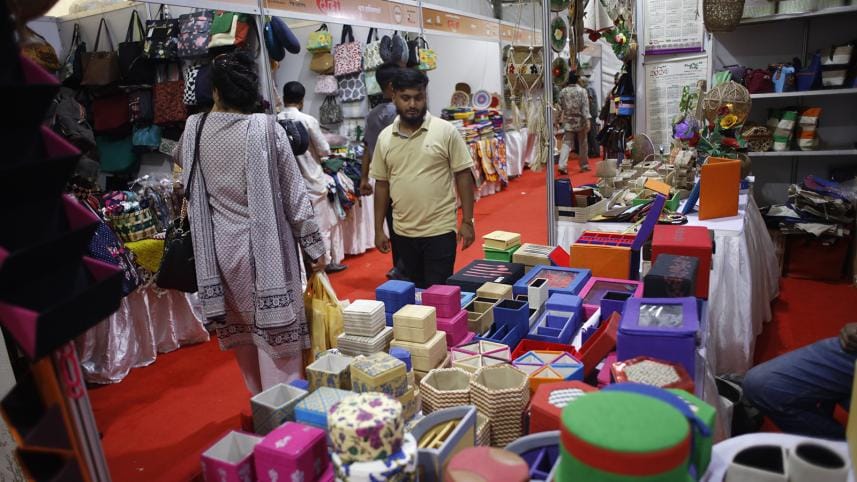
She started her business on a limited scale with a nominal capital in 2018. Interestingly, before blossoming as an entrepreneur, she worked in the film industry as a costume designer.
She likened her foray into entrepreneurship to the voyage of famous explorer Christopher Columbus, who accidentally stumbled upon the Americas while attempting to find a direct sea route to Asia from Europe.
"Basically, I went back to Rangpur from Dhaka to help my sister develop a shataranji manufacturing factory, but I realised the bright prospects of jute products," said Mitul.
"When I began, I did not have machines or equipment. In 2022, I finally set up a factory with 10 machines and 13 workers."
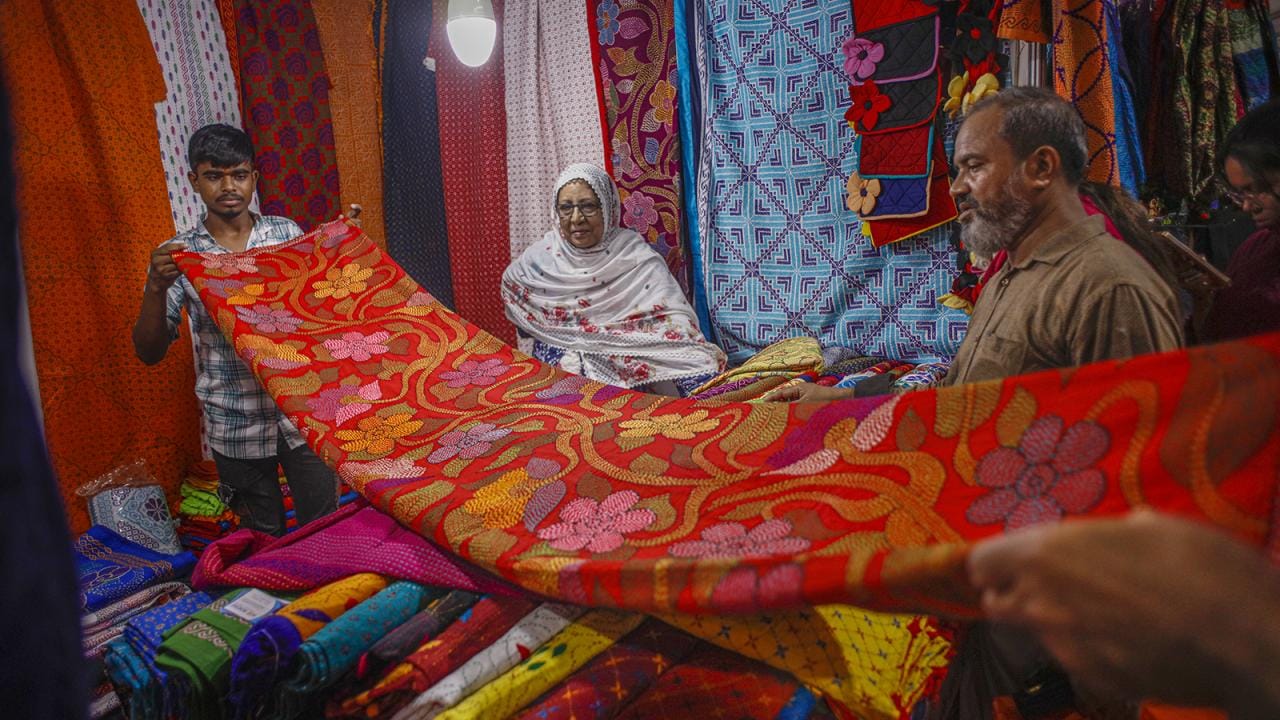
Now, Mitul says, she has export orders for eco-friendly jute bags from the Netherlands and Japan. "At present, my factory can produce jute products worth Tk 50 lakh per month," she noted.
However, Mitul said the profit margin of the business is limited and that it is tough to compete with Vietnam and India in the international market.
Similarly, Nargis Ahmed, owner of Ana Fashion Boutique, started manufacturing handmade cushion covers from jute in 2007 with a minimal capital aiming to utilise her expertise in design and handicrafts.
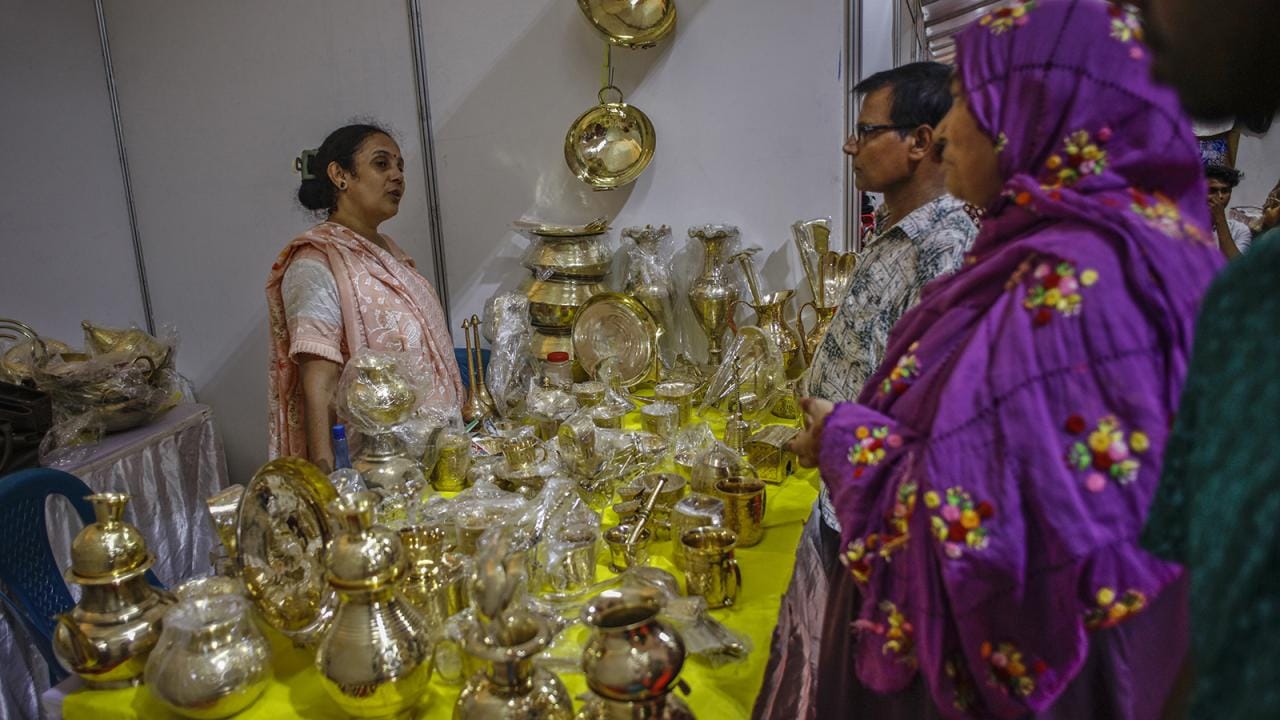
Now, she has two production units: one is located in Narayanganj, and the other is in her home district of Madaripur.
"Around 230 trained workers are employed at my production units, which can produce products worth Tk 70 lakh per month," she said.
She is displaying over 100 types of eco-friendly jute products, including tissue boxes, jewelry boxes, showpieces, and bags which are sought by local retailers and exporters.
Leather goods were also pulling in the crowd, with eye-catching, high-quality products being sold by numerous entrepreneurs. According to them, they export leather goods after meeting demand of large companies such as Apex, Bata, Bay, and Aarong.
Their contributions helped Bangladesh earn $396.37 million through the exports of leather products last fiscal year, a year-on-year increase of 17.40 percent.
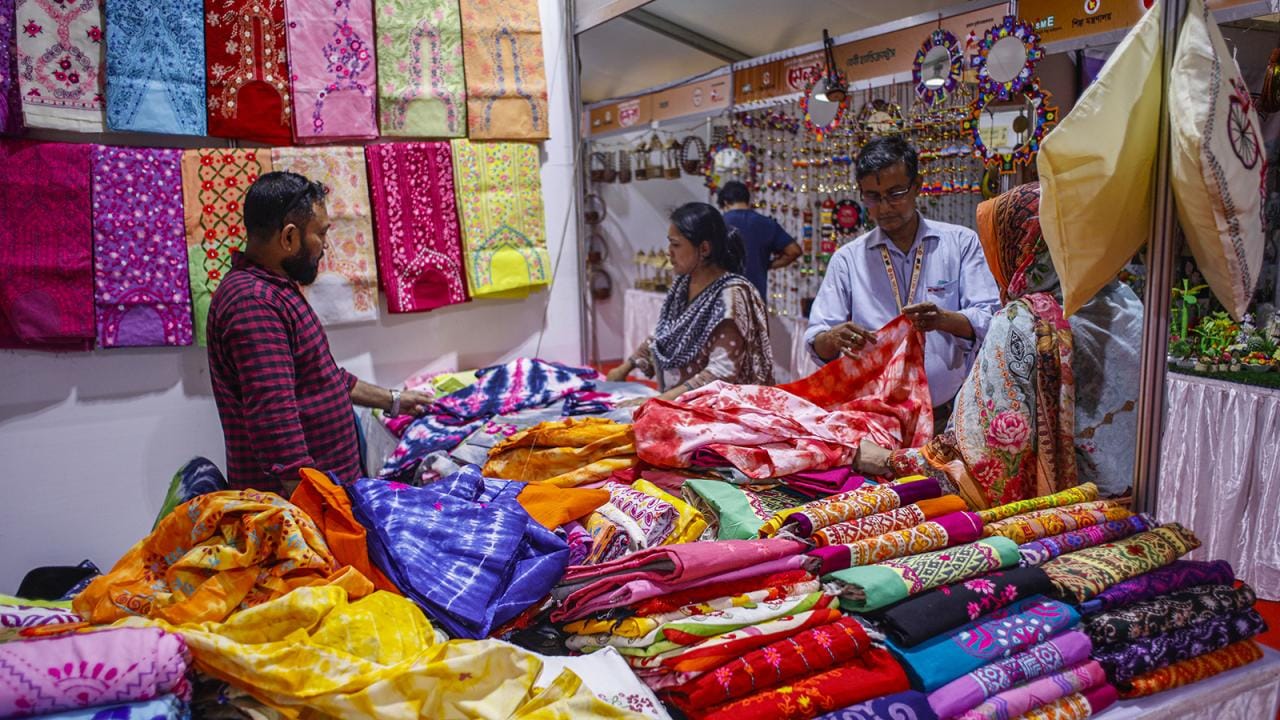
Rubina Akhter Munni, owner of Design by Rubina, said she manufactures more than 100 products, including purses, wallets, laptop bags, and vanity bags.
Not only is she supplying leather goods to local retailers and exporters, she also gets direct export orders from Japan, Europe, and the US.
Nearby, Alim Industries Limited of Sylhet is showcasing agriculture machinery and tools. It manufactures 27 types of farm machinery using local components.
Fayaz Alim Chowdhury, a director of the company, said they have four outlets and also supply their products through over 300 dealers.
According to the SME Foundation, 350 companies are showcasing 100 percent local products at the fair.





 For all latest news, follow The Daily Star's Google News channel.
For all latest news, follow The Daily Star's Google News channel. 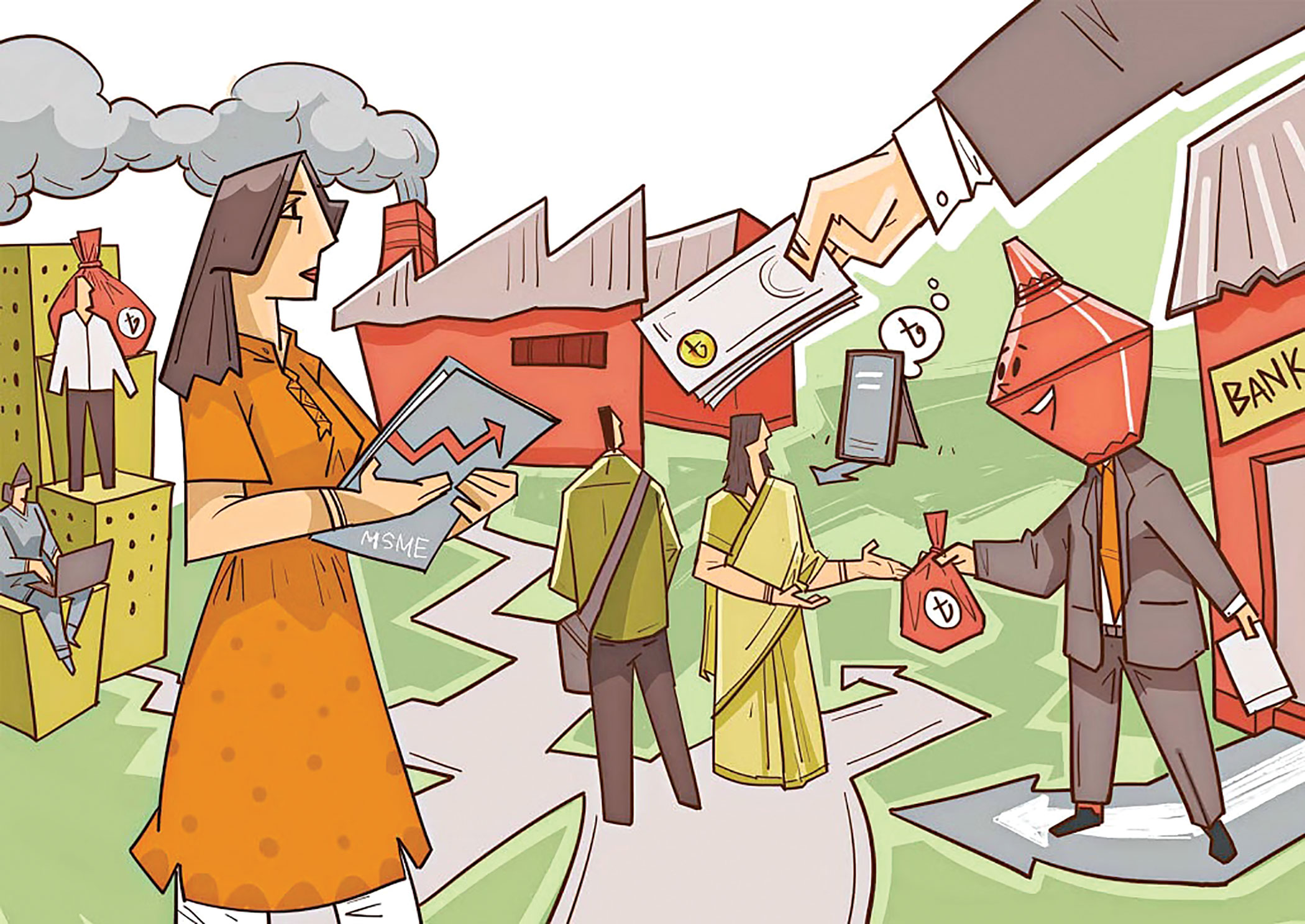
Comments